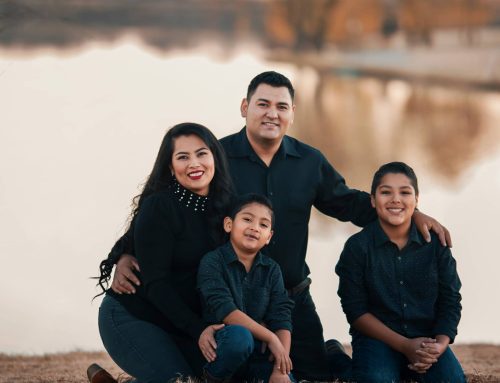Department of Homeland Security announces: Parole in Place. This new plan is being enacted to promote the unity and stability of families. This announcement utilizes the existing immigration framework and authority to strengthen family unity for non-citizens living in the United States that crossed the border without inspection by immigration officials. Under current law, non-citizens married to a United States citizen may apply for lawful permanent residence through their lawful marriage to a United States citizen. But to apply for lawful permanent residence, many non-citizens must first depart the United States and complete the immigration process in their home country. Unfortunately, this often results in a long and potentially indefinite period of separate from their United States citizen family members causing tremendous hardship for everyone involved leading to social and economic instability on both side of the border.
The Department of Homeland Security’s newly announced Parole in Place attempts to remedy the draconian hardship to establish a new process to consider, on a case-by-case basis, requests for certain noncitizen spouses of United States citizens who have lived in the United States for ten years or more: do not pose a threat to public safety or national security; are otherwise eligible for adjustment of status; and merit a favorable exercise of discretion by immigration officials. Once deemed eligible the non-citizen will be able to apply for lawful permanent residence without having to leave the United States. Since there is a screening component where DHS can find the noncitizen poses a threat to nationality security or public safety and can detain, remove, or refer to other federal agencies, it is highly recommended that those with any criminal record consult with our post-conviction relief specialist before applying for this program.
According to the announced plan, undocumented spouses of American citizens will be shielded from deportation, provided work permits and given a pathway to citizenship. The sweeping new protections will assist approximately hundreds of thousands of immigrants who have been living in the United States unlawfully for years but are married to American citizens. President Biden makes the announcement of this policy at the White House marking the 12-year anniversary of the Deferred Action for Childhood Arrivals, or DACA, which protects people who came to the United States as children from deportation, the officials said.
Below are the Eligibility and Process requirements for Parole in Place published by the United
States Immigration Services:
To be considered on a case-by-case basis for this process, an individual must:
- Be present in the United States without admission or parole;
- Have been continuously present in the United States for at least 10 years as of June 17, 2024; and
- Have a legally valid marriage to a U.S. citizen as of June 17, 2024.
- In addition, individuals must have no disqualifying criminal history or otherwise constitute a threat to national security or public safety and should otherwise merit a favorable exercise of discretion.
Eligibility of Children for Parole in Place:
Noncitizen children of potential requestors may also be considered for parole under this process if they are physically present in the United States without admission or parole and have a qualifying stepchild relationship to a U.S. citizen as of June 17, 2024.
Administrative Requirements:
In order to be considered for parole, an individual will need to file a form with USCIS along with supporting documentation to show they meet the requirements and pay a fee. Further information regarding eligibility and the application process, including a notice in the Federal Register, will be published in the near term. USCIS will reject any filings or individual requests received before the date
when the application period begins later this summer. Upon receipt of a properly filed parole in place request USCIS will determine on a case-by-case basis whether a grant of parole is warranted and whether the applicant merits a favorable exercise of discretion. All requests will take into consideration the potential requestor’s previous immigration history, criminal history, the results of background
checks and national security and public safety vetting, and any other relevant information available to or requested by USCIS. USCIS has strong processes in place to identify and address potential fraud, which will be applied here to ensure the integrity of this program.
The Impact for DACA recipients:
In addition, DHS will join the Department of State in an effort to more efficiently facilitate certain employment-based nonimmigrant visas for eligible individuals, including Deferred Action for Childhood Arrivals (DACA) recipients and undocumented noncitizens, who have graduated from an accredited U.S. institution of higher education. By clarifying and enhancing the existing process, the Department of
State’s policy will give U.S. employers increased confidence that they can hire the talent they need, and that they will be able to quickly get to work. DHS will implement the Department of State’s policy update.
For more detailed information or to determine if you or a loved one qualifies for this program please do not hesitate to contact Uribe & Uribe APLC to schedule a consultation.
Schedule appointment
Uribe & Uribe APLC
Nothing can impact your life or the life of a family member more than one’s immigration status. Are you interested in obtaining immigration benefits? Do you have a plan in action for success? At the Uribe & Uribe APLC we can help you create a strategy for success.







